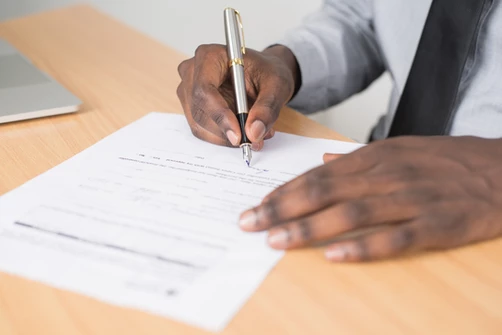- Finding the right commercial space is vital to the operation of a successful business.
- A good broker is important to help find a space and help with the initial negotiations.
- When it comes time to negotiate the lease, a dynamic commercial real estate lawyer is essential.
Retail is booming. Office is lagging. Industrial is thriving. And all of these have one thing in common – companies are looking to lease the space.
There are a lot of good brokers in Texas that can help you find good space if you are looking. If you need some suggestions, let me know. I know a bunch of really good ones. But once you get that step, it is time to negotiate that lease. And while brokers are good for finding spaces, they are not good for reviewing leases. Indeed, most of them will tell you they can’t because they aren’t a lawyer. That’s why a lawyer is so essential at this step – to guide you through the lease negotiations. So lets talk about some important parts of a commercial lease.
Preparation is Key
That title is ubiquitous. Because its true for almost everything. Preparation is key to getting a good result in just about anything – including commercial leases. Before negotiations begin, gather your ducks in a row. Your broker should be able to help you find this.
First you really need to know your business needs. Define your space requirements (square footage, layout, amenities) and budget constraints. Consider future growth projections to avoid getting locked into a space that becomes restrictive.
Then lean on your broker to research the rental market. He or she should know what is available, what the going rate is, what will fit your needs, etc. This will help you find the right place and negotiate a fair rate.
Again, this is a part where you should rely heavily on your broker so I am speaking a little out of my comfort zone.
Deconstructing the Lease Agreement
Once you find the right place, it will be time to negotiate the lease. Some landlords like to use a promulgated TAR lease. And others have their own lease. Either way, this is when you should hire a lawyer to review and negotiate it. Because its important to fully understand the following:
- Term and Renewal Options: The lease term dictates your occupancy period. Consider your business timeline and negotiate for renewal options with clear terms regarding rent increases.
- Rent and Escalations: Review the base rent, understand how it’s calculated (gross vs. net lease), and negotiate escalation clauses (annual increases). Aim for a transparent and predictable rent structure.
- Tenant Improvement Allowances (TI): This clause addresses permissible modifications to the space. Negotiate a clear TI allowance to cover necessary upgrades and secure reimbursement terms from the landlord.
- Operating Expenses (CAM or NNN): In some leases, tenants share property operational costs. Review the CAM or NNN clauses carefully, understand what expenses are included, and negotiate limitations on these costs.
- Use Restrictions: This clause outlines permitted business activities within the space. Ensure it aligns with your business operations and allows for flexibility if needed.
- Maintenance and Repair Responsibilities: Clearly define who handles routine maintenance and repairs. Negotiate specific timeframes for the landlord’s response to repair requests.
- Assignment and Subletting: This clause addresses your ability to assign the lease or sublet the space to another tenant. Negotiate for these rights if they might be relevant for your business in the future.
- Termination Rights: Understand the conditions under which you can terminate the lease early and any associated penalties. Negotiate for reasonable termination rights in case of unforeseen circumstances.
- Default and Dispute Resolution: Review the clauses outlining both parties’ responsibilities in case of default (e.g., missed rent payments). Negotiate for fair dispute resolution mechanisms, such as mediation or arbitration.
When negotiating your lease, there are a lot of moving parts. Some of the above are best addressed by your broker. He or she will have the initial discussions and good ones are very good at helping you to get the best deal for you. But once there is a deal in principle, Its important to understand all of the above parts of your commercial lease. And that’s when a good lawyer is invaluable.



